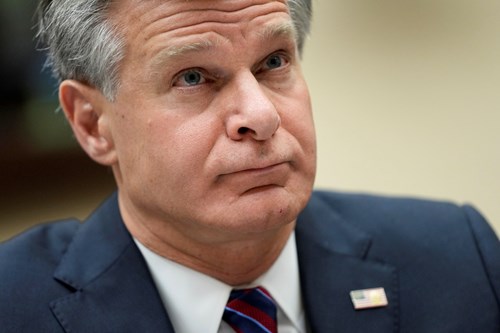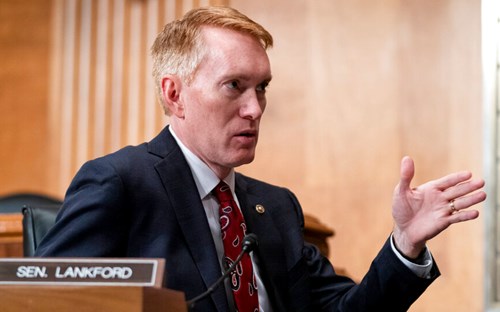Chris Wray and Alejandro Mayorkas (Mayorkas pictured above, Wray below) were originally asked by the Senate Homeland Security and Governmental Affairs Committee to appear in September.
They declined then saying it was too close to the election and therefore difficult, Sen. James Lankford (R-Oklahoma) said on Washington Watch Thursday.
They were hiding their true intentions.
"So, we postponed it until after the election," said Lankford. "Then literally today (Thursday) they said, 'we don't want to come; we will come in a classified setting, but we don't want to be in an open setting.'"
The Committee has been trying to get the number of what are called special interest aliens out of DHS for months. The Committee also wants to discuss what Lankford called "a major hack of our telecommunications system by the Chinese."
"So, they knew the topics," said Lankford (pictured at right). "They just bailed and said, 'we don't want to talk about them.'"
A 2019 press release from DHS states that a special interest alien is "a non-U.S. person who, based on an analysis of travel patterns, potentially poses a national security risk to the United States or its interests." DHS has also said that "the threat is real." As for the reported hack, a statement in mid-November from the FBI And Cybersecurity and Infrastructure Security Agency (CISA) called it a "broad and significant cyber espionage campaign" that is under investigation.
Senate hearing is not an unusual request
In a statement published by Reuters, Senate Homeland Security and Governmental Affairs Committee Chairman Gary Peters called their refusal to publicly testify a "shocking departure" of precedence going back 15 years.
"Their choice to not provide public testimony about their departments' efforts to address wide-ranging national security threats robs the American people of critical information and the opportunity for public accountability of what the federal government is doing to keep Americans safe," Peters said in a statement.














